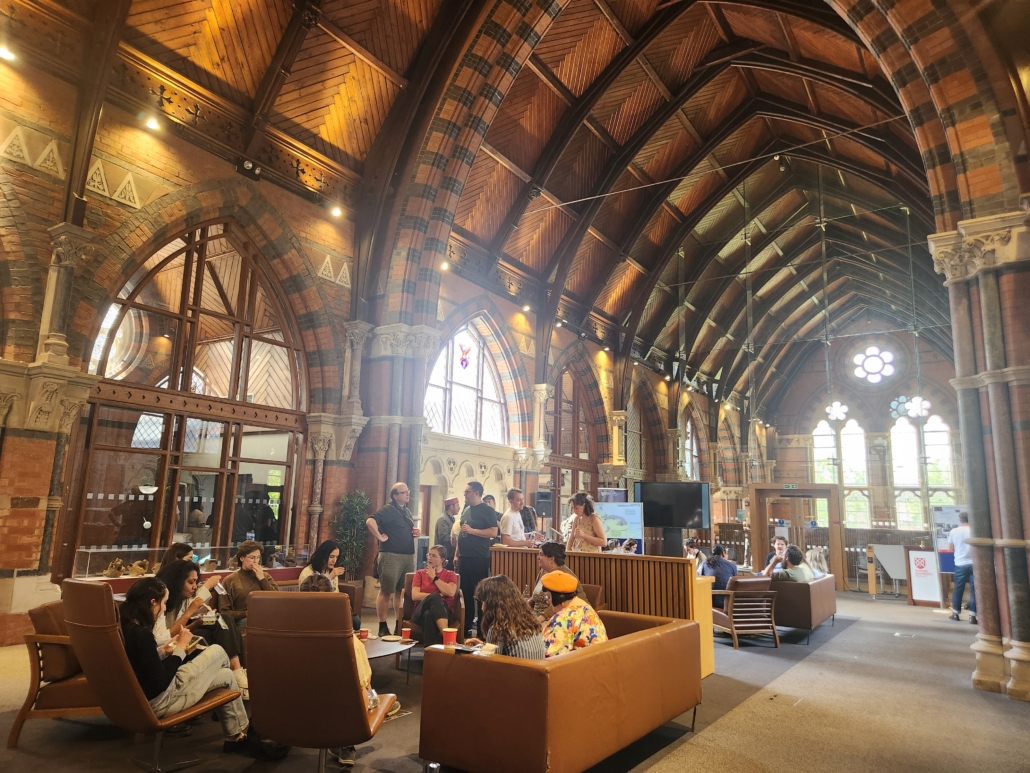The theme this year was ‘Difficult Histories of Gender and Community,’ tying into the theme of the conference centring on Gender and Family. Proceedings began with a roundtable addressing recent work on the cultural and social history of Northern Ireland, led by Sean O’Connell, Professor of History at Queen’s University. The roundtable introduced students to the history of Belfast, and Northern Ireland more generally, including the history of the Troubles, and the active research going on that gives voice to, and readdresses, this difficult but integral part of Northern Irish History.
Over the next two days there were 6 panels, each with 2-4 papers from DéPOT students and postdoctoral affiliates, as well as external researchers that work on deindustrialisation. A full programme of all who presented their work can be found on the DéPOT website. The panels addressed deindustrialisation in many varied but symbiotic forms, including troubling masculinities, intergenerational legacies, the lens of childhood, the state and politics, urban places, and expressions of loss. We also had the pleasure of two workshops, with the first allowing participants to engage with inclusive heritage practices with postdoctoral affiliate Guilherme Pozzer and one of DéPOT’s 2023-2024 artists-in-residence, Jennifer Vanderpool The second workshop was facilitated by Sophia Richter, looking at research methods and methodological approaches to studying deindustrialisation, and how as deindustrialisation scholars we can use these in our own work. The two days concluded with a roundtable discussion about why we choose to study deindustrialisation. This was moderated by Steven High, featuring two presentations on the histories of capitalism, class, and their relationship to deindustrialisation as a field of research, followed by questions and comments from Fred Burrill and the wider Summer Institute cohort.
Following the Summer Institute, on the morning of 22nd June, the annual in-person Student Caucus meeting was held with existing DéPOT students and postgraduate affiliates, to discuss the past year of online talks and activities, as well as plans for the year ahead. At this meeting the current Student Caucus Steering Committee stepped down from their positions, and thanks must go to Naomi Petropoulos, Rebekah Chatellier, Sinead Burns, Shonagh Joice, and Katherine Watson, for all of their hard work on the committee. The incoming Steering Committee were chosen during this meeting, which includes Graham Latham, Adna Camdzic, and Laura Littlefair. Similarly, the student representative for the DéPOT Coordinating Committee stepped down, and thanks must also go to Tom Wilson for his role over the past 2 years, with the new student representative being Seana Irvine. Huge thanks and appreciation must also go to the organising committee of the Summer Institute, for arranging and hosting an excellent few days in Belfast: Sinead Burns, Shonagh Joice, Naomi Petropoulos, Adna Camdzic, and Sean O’Connell.
As well as academic pursuits, the Summer Institute was an opportunity to catch up with friends and scholars from across the world, whilst also making new connections with DéPOT affiliates who have recently joined the organisation. A perfect way to do this was at the Summer Institute meal at The Jharna, where we were all treated to a meal courtesy of DéPOT and Queen’s University. On the afternoon of 22nd June, following the Student Caucus meeting, there was the chance to explore Belfast on walking tours to either the Titanic Quarter with Pete Hodson, or Sailortown with Sean O’Connell. Both tours offered the opportunity to learn about the rich history of shipbuilding and dockwork in Belfast, explore some of the vast collection of murals, and understand more about the legacy of the Troubles around the city. On 23rd June, the Summer Institute cohort travelled to Glasgow via the Belfast to Cairnryan ferry, ahead of the DéPOT Project Assembly and Conference the following week. It’s safe to say we all had a wonderful time at the largest Summer Institute yet, and as a first-time attendee to the DéPOT Summer Institute and Conference, I felt incredibly welcome and truly a part of the deindustrialisation studies community!





